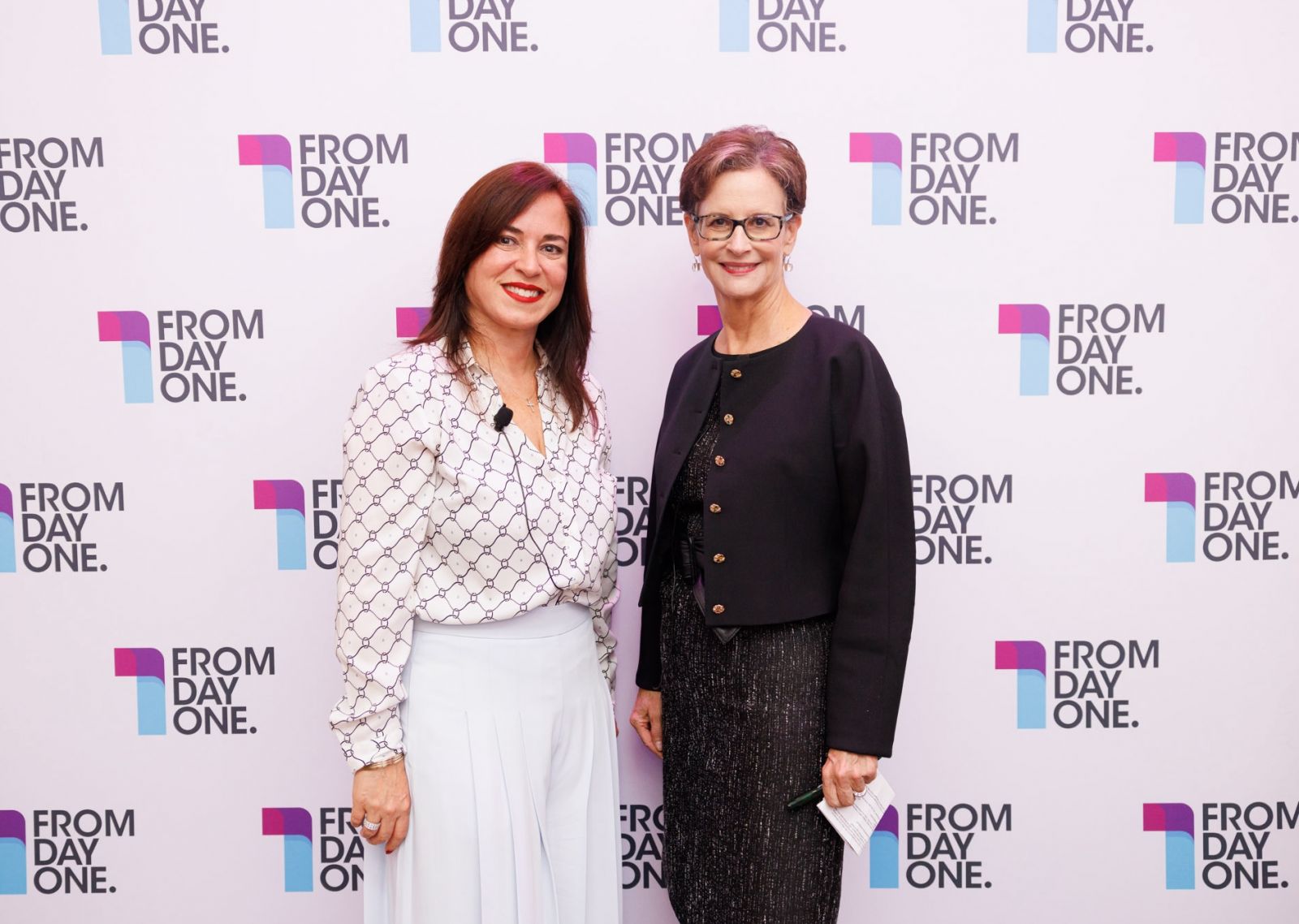Leading With Humanity: What Younger Workers Expect From Their Managers


When Maribel Diz, senior vice president of human resources at Visa, joined the workforce, she recalls being motivated by a desire to climb the corporate ladder, an ambition shared among others in her generation. The fruits of their labor were to be rewarded ostensibly with higher pay and rank.
Millennials and Gen Z, however, approach their careers from a slightly different perspective, Diz shared in a fireside chat during From Day One’s Miami conference. Diz sat down with moderator Jane Wooldridge, senior director of journalism sustainability and partnerships at the Miami Herald, to discuss how managers best tailor their leadership styles to courting a multigenerational workforce, particularly young workers.
“They’re driven by intrinsic value,” she said. “These employees care about impact. They care about society. They need to have a sense of pride in the company that they work for.”
Gen Z, individuals born between 1997 and 2012, represent an increasing share of the workforce. The cohort is forecasted to be 30% of the workforce by 2030, according to the U.S. Bureau of Labor Statistics.
Employers focused on high retention rates will need to think about how their employees perceive their role in the company and the extent to which their varying expectations of their managers are being met.
Diz’s answer to centering the needs of a multigenerational workforce? Lead with humanity.
Authentic Leadership
Young workers’ trust may not be bought, for example, with a happy hour hosted by their managers, Diz says. But they do want their managers to be stand-up people who will stick up for them when needed.
“They’re looking for someone who will have their back, that will give them feedback and coaching,” she said.
Providing work-specific guidance signals that employers are invested in their workers’ growth and capability to meet expectations. Still, above all, Diz says beyond work-related agendas, managers should lead with humanity.

She defines this as an authentic relationship-building where employers think of their employees holistically – not just individuals performing a service for the company, but as people with distinct lives.
“It starts with asking someone, ‘How are you doing?’” Diz said as an example. “‘How was your weekend?’”
Such questions should not be treated as a checklist at the beginning of the meeting or an optional afterthought at the end, rather they represent continuous practices to foster an empathetic workplace.
Managers who come across as humble or relatable may also find that employees have more confidence in their leadership. To that end, managers must admit their mistakes and admit when they do not have all the answers. “Always take accountability,” Diz said.
After all, everyone is human.
The Cost of Losing Employees
There’s also a financial benefit to leading with humanity.
In a 2022 McKinsey study on generational gaps in the workplace, researchers found that 77% of Gen Z respondents reported actively looking for a new job. Employees may be courted by competitors at any given moment. If they feel that their values and expectations do not align with what their employer is putting forth, they can have a higher incentive to depart prematurely. Loss of talent can be a financial blow to the company.
“Do you know how much it costs to hire someone?” Diz said.
In the months-long process to recruit, vet, interview, and onboard new hires, companies can rack up costs that range from 50% to 200% of the role’s base salary, according to analysis from research firm Forrester.
“If you hire someone and you lose them within six months or even a year because you haven’t fostered that connection with them, you’ve just lost a lot.”
She continued, “It doesn’t take much to connect with your people.” Once these relationships have been built across your workforce, a domino effect can occur.
“More people would want to sign up and work for you,” Diz said. “If we just pay a little more attention, the reward is just tenfold.”
Uwa Ede-Osifo is a writer, journalist, and producer based in Brooklyn, NY. She recently concluded a reporting fellowship at NBC News where she covered national news including youth culture, race, and inequality.
The From Day One Newsletter is a monthly roundup of articles, features, and editorials on innovative ways for companies to forge stronger relationships with their employees, customers, and communities.